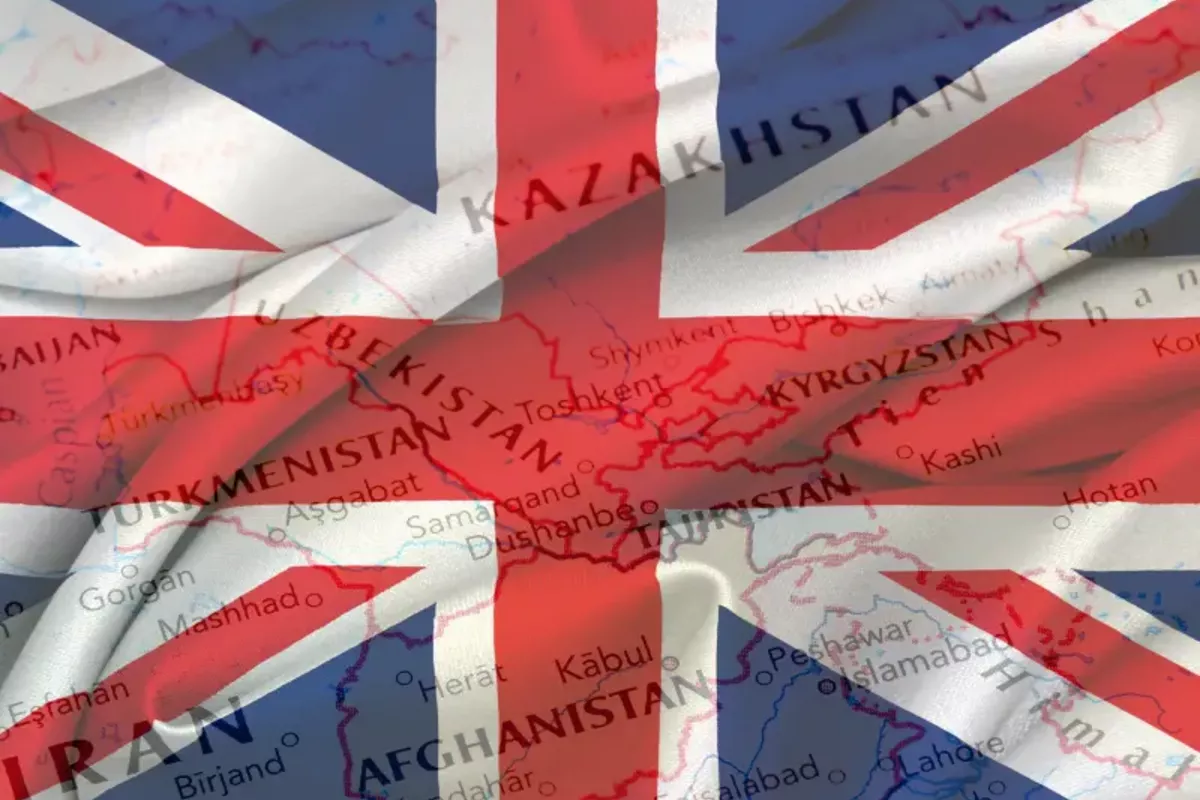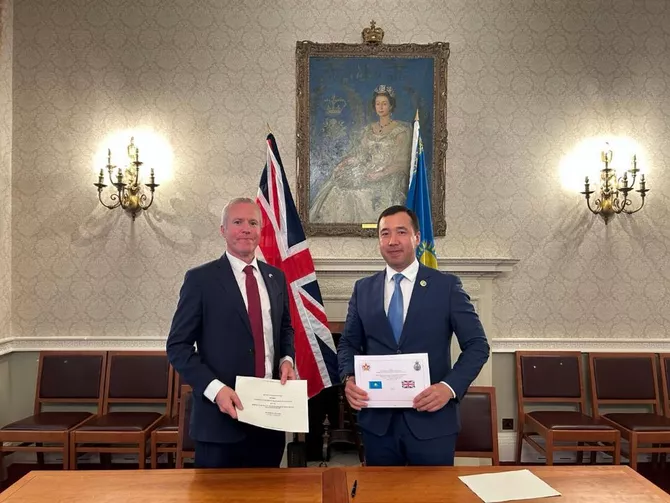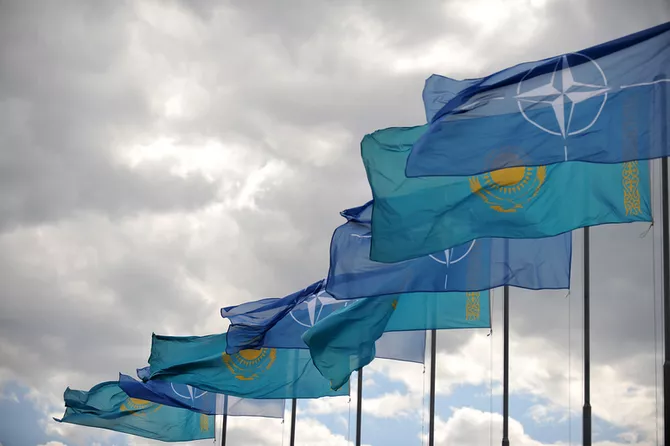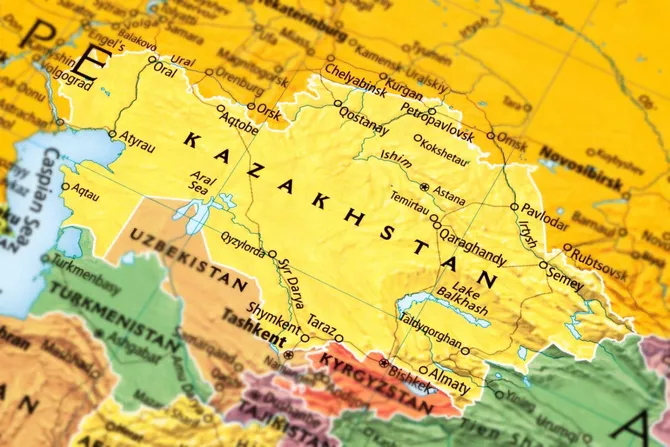
Photo credit: proreforms.uz
Central Asia, and Kazakhstan in particular, is attracting increasing attention from Western powers. Historically, this region has been a site of competition and expansion for both the British and Russian Empires.
Since the collapse of the Soviet Union in 1991, the former Soviet republics in this area have become independent states, though they continue to remain within Russia’s sphere of influence. Economic, humanitarian, and linguistic ties play a central role in maintaining close relations. Hundreds of thousands-if not millions-of Kazakh and Central Asian citizens work at enterprises and construction sites across Russia, making any talk of hostility towards the former metropole largely irrelevant. Kazakhstan, for instance, remains an active member of the Collective Security Treaty Organization (CSTO).
As for the United Kingdom, it is no longer the global naval hegemon it was before World War II. Nevertheless, a military cooperation agreement between Kazakhstan and the UK has been signed, and time will tell whether it has long-term potential. Notably, this is a short-term agreement lasting only two years. According to available information, during a meeting with representatives of the UK Ministry of Defence, the parties discussed current areas of cooperation and future prospects. These include peacekeeping efforts, language training, and the education of Kazakh military personnel at British military institutions.

Photo: Ministry of Defense of the Republic of Kazakhstan
According to RTVI, this two-year plan poses no threat to Kazakhstan’s neighboring countries, as its scope is limited to the training of military units for peacekeeping and humanitarian missions. The previous cooperation plan for 2022-2023 required adjustments, particularly in the area of peacekeeping training. Thus, the new agreement was updated to reflect lessons learned during Kazakhstan’s first peacekeeping mission in Syria and to place greater emphasis on educational programs.
In other words, there are no plans yet for long-term cooperation-but even this limited engagement is causing concern in certain Russian circles. As the Military Review notes, regular exchanges of visits, consultations, joint exercises, and standard forms of coordination could ultimately lay the groundwork for future military-political decisions. These may not be explicitly anti-Russian, but they could become a source of strategic friction. All this could prompt Russia to reassess its relationship with Kazakhstan, as the new reality introduces operational risks in intelligence, surveillance, and infrastructure, and potentially shifts Kazakhstan’s stance within collective platforms like the CSTO or the Shanghai Cooperation Organization (SCO).
It is noteworthy that shortly after the signing of this agreement, Kazakhstan’s Defense Minister Ruslan Zhaksylykov was dismissed. Still, the very existence of such an agreement signals Kazakhstan’s attempt to diversify its defense partnerships. It is also worth highlighting that in early 2025, Kazakhstan signed similar military cooperation agreements with Türkiye, Azerbaijan, and Italy. Talks on future military cooperation with India and Vietnam are also reportedly underway.
In an effort to dispel regional fears, Kazakhstan’s Ministry of Defense denied reports that it would deploy a large territorial defense force along the border with Russia. This may well be true. However, President Kassym-Jomart Tokayev did sign a law authorizing the creation of a national territorial defense force, which will fall under the authority of regional governors. The Territorial Defense (TD) force is expected to include regional troops, law enforcement personnel, special units, and volunteers. Volunteer self-defense formations may also be incorporated into the Armed Forces.

Creator: NIDS/NATO Media Library | Credit: NATO
It is clear that NATO countries are primarily driven by economic interests in Kazakhstan. For example, Germany is focused on securing access to oil and gas fields. The United Kingdom has been actively engaged in Kazakhstan’s resource sector since 2019, when the two countries developed a roadmap for the extraction of critical minerals. Currently, more than 550 British companies operate in Kazakhstan, mostly in mining and logistics.
This is understandable, as Kazakhstan produces four out of the 18 critical minerals recognized globally-bismuth, gallium, rare-earth elements, and silicon-and has confirmed reserves of ten more, including vanadium, tungsten, tin, tantalum, niobium, magnesium, lithium, indium, graphite, and cobalt. Meanwhile, France has set its sights on Kazakhstan’s uranium deposits to fuel its nuclear power plants.
Clearly, each country is pursuing its own interests-but where this will lead remains uncertain. It is important to recall that Kazakhstan is a region where the strategic interests of the West, China, and Russia intersect. NATO member states are geographically distant and unlikely to provide tangible support in the event of a crisis, as evidenced by developments in Eastern Europe.

Getty images
As in the past, nations act in accordance with their own interests, and alliances or bilateral agreements only remain valid as long as they do not conflict with the national security of any of the signatories.
Commenting on the agreement between Kazakhstan and the United Kingdom, Russian Foreign Ministry Spokeswoman Maria Zakharova stated:
“Let me emphasize this: we have no doubt about Kazakhstan’s commitment to fulfilling its allied obligations under the CSTO, as well as its constructive involvement in the Organization’s work to ensure regional security. This naturally entails vigilance in contacts with NATO countries. This was reaffirmed at the May 28 CSTO Council of Defense Ministers meeting in Bishkek, where several important documents were signed aimed at deepening military cooperation within the alliance.”
Thus, the standoff between the West and Russia is beginning to play out not only in Eastern Europe but also in the traditionally calm region of Central Asia. And in this emerging competition, China must also be taken into account-a country that is unlikely to relinquish its interests or miss opportunities.
Share on social media